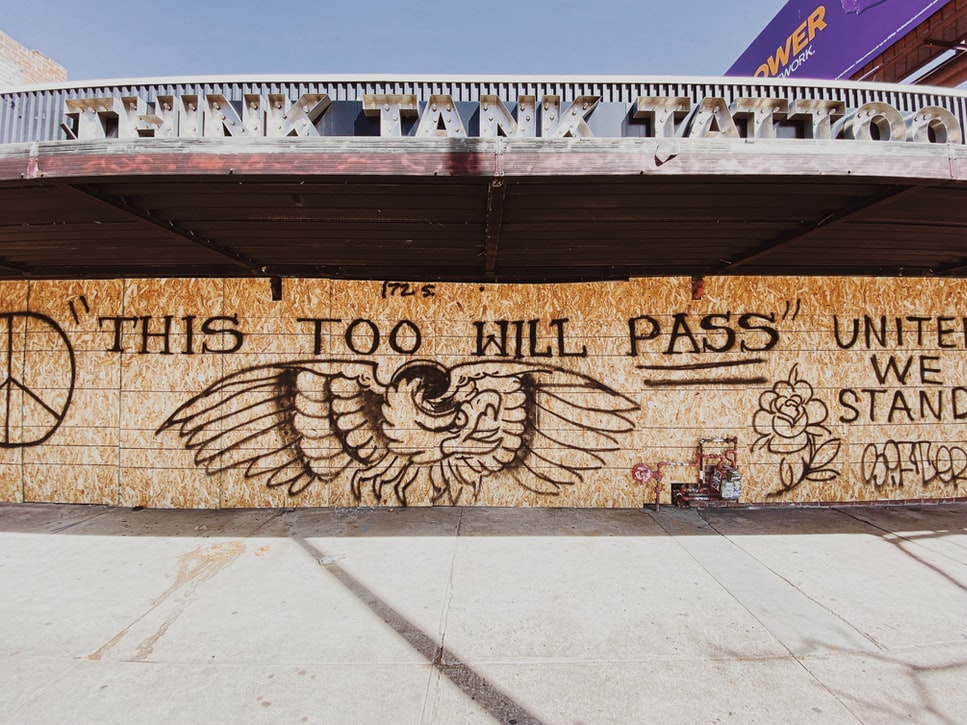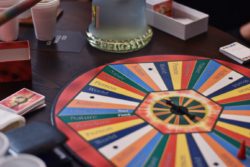
Some tips from UNE CAPS during COVID-19
This article has been written by registered psychologists, Deb Warren, Kylie McDonagh and Annette Stevenson, from UNE Counselling and Psychological Services (UNE CAPS).
COVID-19 is clearly a challenging time for everyone, with so much changing in a short period of time. A host of feelings have probably arisen for you. It can be “normalising” or reassuring to know that others in the same or similar situation as yourself may also feel lonely, frustrated, stressed, scared, confused, tired, or perhaps have moments of feeling calm, accepting, resilient, resourceful, generous, creative, or a mixture of all these things and more. It is important to validate your feelings, however variable or unexpected they may seem. There is no right or wrong way to feel.
While we feel a myriad of emotions in these uncertain times, there is comfort in being able to identify more “certain”, tangible, concrete goals or outcomes that you would like to achieve.
As a student, you may find that study is the one certain thing that you can keep progressing with while in isolation. In contrast, some of you may be responding to more immediate pressures or concerns such as finances, accommodation and childminding – which then can take you away from meeting your study goals.
Whatever your circumstances, below are some tips which we hope help you to identify and meet important goals during this “unprecedented” time.
We also appreciate that some of your “go-to coping strategies” (i.e. going out with friends, going to the gym or the movies) or normal problem-solving approaches may not be possible. You may need to think “outside the box” and do things a little differently. All the while, remember the importance of the four pillars of mental health and wellbeing: sleep; nutrition; exercise; and connectedness.
Some tips
Establish a daily routine as best as you can (include work and study requirements, self-care, connecting with others time). Focus on clear concise goals and tasks that you would like to achieve. Break things down into smaller chunks if feeling overwhelmed or struggling to focus. Set deadlines for yourself. Test out your routine and adjust as need be. You can also “chunk” isolation time into segments, so the weeks don’t seem so overwhelming. Use rewards to help with motivation if needed.
Keep to a regular sleep and wake time. Do all of the things you CAN control (i.e., breakfast, shower, dress, house/desk tidy). Start the day off with the idea ‘today will be a good day’. Include daily 30 minutes of exercise and, if possible, time outdoors. While gyms are off-limits, go for power walks in your local neighbourhood. Discover any local parks and bike paths. Create your own safe workout at home – step-ups on the back step; skipping rope; running on the spot.

Take regular breaks; implement the 20-20-20 rule, look at something 20 feet away (roughly 6 metres) for 20 seconds, every 20 minutes; blink often; stay hydrated. If you are fatigued by so much screen time, perhaps experiment with blue light filters set to a level that is comfortable for you, or use “night-time” settings or turn down the brightness level.
Fuel your body with good nutrition. Boost memory with B-group vitamins and folate – vegemite, peanut butter, leafy greens. Fuel the brain with glucose from low GI complex carbs – wholegrain foods, oats, peas. Exercise your insides with high fibre foods – beans, veggies, nuts, salads, whole grains. Repair your body with protein and fatty acids – eggs, fish, dairy, nuts, meat, poultry. Relax body and mind – peppermint tea, tryptophan amino acids in seeds and nuts for good sleep/mood.
Limit overexposure to COVID-19 information that ‘catastrophises’. Perhaps just a daily 15 mins in the morning and evening to catch up on important government responses to the virus. Use social media to promote a sense of connectedness, but disconnect from “COVID speak” if it is increasing feelings of overwhelm and fear. Notice the good things in the world also happening (i.e.., applauding health care workers, drive-by birthday party wishes, less pollution). What small thing can you do to add something positive in your community circle?
Use any spare time you may have to do something you always wanted to do. For example, learn some phrases in a new language, plan your next holiday, watch YouTube videos on how to draw, catch up on some study you may be behind in – we especially encourage this one. But if this level of productivity doesn’t feel right to you, don’t stress. Relish that tv binge with all your heart.
If you are in a house with multiple people, try and find your own ‘zone’ to retreat to when needing space. If you haven’t already got one, create a designated study space. Aim for somewhere airy, bright, and appealing if possible. If space is an issue, purchase a folding table to make a space when you need it and to free up when you don’t.
Tell yourself this is all a temporary situation, and think about what meaning you might be able to make of the situation (i.e. gave me more time to spend with family, gave me time to reset and think about values and my priorities in life).
Reach out for help if you need it – friends, family, counsellors, G.P, online mental health supports.
Create “accountability”, if needed, with family and friends, telling them (virtually if needed) of your goals and progress. Use the flexibility of being at home to identify when you study best and negotiate with others in the same household about if and how to protect that study time.
If the pace of life seems slower, use this to your advantage. Take time to stop and reflect on your study, and how you use your time. Identify what your priorities are in life. How important were or are the things that kept you busy before this period of isolation? Were they essential types of “busyness”? What has been missing in your life and in your studies?
Use time at home to tidy your wardrobe or pantry – as long as this doesn’t become a form of procrastination to avoid study. Is there something you’ve wanted to do, learn, read, that you’ve not had time to undertake before now. Again, it is about making time work for you, not adding extra distractions to your studies.
Use your imagination, creativity and ingenuity to discover different ways of doing what is important to you. For example, if you can’t meet with friends for a weekly get together, consider a virtual social or pub night. Go with themed events, or create an online trivia quiz via an online platform.

If you are spending more time studying and working online, think about recreational activities that take you offline – board games, puzzles, books, colouring in, sewing, making a pot-plant garden, learning to play a musical instrument. Learn to bake. Prepare some slow food – food that takes time to make and deserves lots of time to enjoy fully.
Practice ‘radical acceptance’ of yourself, your limits, and your responses to the current situation. Try some mindfulness, self-soothing (take a bath, repetitive movement such as skipping, rocking, humming).
Mindfulness is the capacity to be aware of the present moment in a calm and non-judgemental way. You might say you are all too aware of the negative aspects of your present circumstances. But there can be relief in not railing or struggling against all of it. Sometimes an attitude of “It is what it is” can free you up to focus on a study task, to cook a meal, to listen to a lecture, or to read a bedtime story to a family member.
Practice mindfulness as much as possible to reduce overwhelm and to increase present focus and productivity.
Click this link for mental health sites and apps, including for mindfulness, recommended by the Black Dog Institute during COVID-19 .
For other suggestions on how to look after your wellbeing during this COVID-19 situation, go to:
- the Australian Red Cross
- this post from a NYS Psychologist, Eileen Feliciano, that Simon Fraser University in the US has kindly shared
- the UNE CAPS student tip sheets for generic suggestions for overall study and personal wellbeing.
“This too shall pass”. We will return to regular life again.
You may find yourself changed by this new and unique experience. You may discover new values, priorities, routines, and skills that alter how you move forward with your life. For example, people have reported realising just how much they underestimated the positive impact that random chats with strangers, standing near others, or being able to approach the counter in a store, etc., can have on wellbeing. Or, you may return to “life as you knew it”.
Either way, holding on to the thought that things will eventually return to normal and that this experience will end can help.
UNE students can access free counselling through UNE Student Counselling and Psychological Services (CAPS). They are fully qualified and registered psychologists, offering on-campus appointments and phone/video chat sessions for online students. The service is confidential and free for UNE students.
You can contact them Monday- Friday, 9am-4 pm, on (02) 6773 2897.
For more urgent assistance, UNE offers After Hours Support on weekdays from 4.00pm to 9.00am AEST, weekends and public holidays. Phone 1300 661 927 or text 0488 884 169. Alternatively, you can contact Lifeline on 13 11 14.
If you have concerns about how stress and mental health are impacting your studies, contact Advocacy & Welfare on (02) 6773 3116 or at advocacy@une.edu.au.


